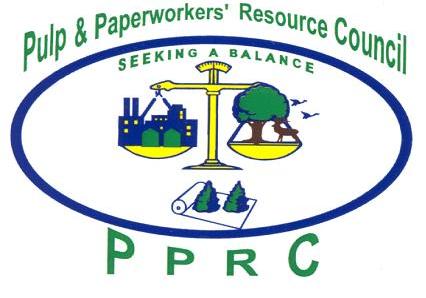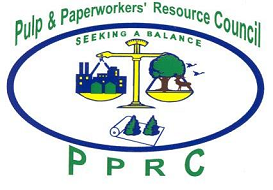By David M. Wise
WestRock
Pulp and Paperworkers’ Resource Council
National Steering Committee Chairman
I got my start in the forest products industry 26 years ago after serving in the US Army. When I came home (Desert Shield /Storm), there weren’t a lot of good, secure family-wage jobs available in rural South Carolina. You only really had three choices. The railroad, United Parcel Service or the paper mill.
I had always heard that getting a job with the paper mill was like winning the lottery. A job in the forest products industry had everything one could ask for in a job. Secure steady work. A job that had provided an excellent living for generations. Quality low-cost insurance. An abundance of time off and, not to mention, excellent higher-than-average pay.
This was a place I could settle, make a good living, provide for my family and one day retire. You could say I DID win the lottery. My 26-year career at WestRock’s, Florence, South Carolina mill has afforded me the opportunity to send my children to college, buy a nice spacious home and provide my family with new dependable vehicles and much more.
I am not the only lucky one though. The forest products industry has touched more workers than myself. Some mills have as many as three generations working at one facility, and some of our employees are fifth or sixth-generation paper makers. It is a way of life for us, and National Forest Products Week (October 15 -21) is a great time to share it.
Our companies, their employees and families form the heart of our communities. Together, we are a fiercely dedicated group of individuals who stick together as we work to ensure our industry’s future and the health of our environment through sustainable practices. We are American manufacturing, and this is my story.
Throughout my career I have witnessed the ups and downs of our industry. Unfair trade practices, overzealous environmental regulations and legislation that has wreaked havoc on our industry. Smaller mills are closing and continuing acquisitions are creating larger corporations. Many plants have had to endure austerity programs to be able to afford and implement new overly restrictive environmental standards. Some facilities have had to file bankruptcy and close.
When I began my career in the forest products industry in 1996, it employed more than a million people. It now employees around 900,000 men and women. Even with this reduction in jobs, the industry still ranks among the top 10 manufacturers in 45 states and meets a payroll of $50 billion annually. Our industry still accounts for four percent of all U.S. manufacturing GDP.
The people of our industry are dedicated to conservation and sound forest management practices. We realize that without healthy forests and a good clean environment our industry cannot survive, nor can we. That’s why we are dedicated to conserving our environment while we strive to preserve the stability of the work force and contribute to the economy of the surrounding communities.
In rural communities across the U.S., where most of our industry is located, our companies are one of the largest employers in the area. Our payrolls keep the region thriving with employees buying new cars, new houses, new boats and ATV’s. The taxes generated by the mills, the loggers, the supporting companies and their employees play a vital role in the economic stability of the entire community. And, local school districts, city and county offices and agencies, along with local and national merchants depend heavily on the revenue our industry generates.
When someone in town needs surgery, has excessive medical bills or are stricken with a terminal illness, our people are the first to donate, and they donate big and selflessly. Our employees are youth athletic coaches and Boy Scout and Girl Scout leaders. They teach safety in local schools and educate the local school children on the importance of the forest products industry. The list goes on.
There will definitely be more ups and downs, but today and tomorrow, I’ll be on the side of the men and women who are committed to a bright future for the forest products industry. So next time you take a note on a piece of paper at a meeting, wipe a spill up in your kitchen with a paper towel or package up a gift for a relative, take time to remember who we are, what we face as we contribute to the economy and how we are working to make your everyday life just a little bit easier.



Leave a Reply